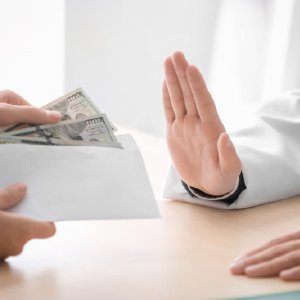How to Heal from a Surgery While Avoiding Addiction Risk from Painkillers

No one wants to undergo surgery, but it is sometimes necessary or desirable. Anything from a simple wisdom teeth removal to an appendectomy for a ruptured appendix or a C-Section for a pregnancy complication, all of these count as surgeries.
When we think of surgery, our attention is 100% focused on the act itself, having to go under the knife, wondering how much it will hurt, etc. We rarely think about the follow-up care and the recovery period, but we should.
We need to start planning for post-op recovery before we commit to a doctor for surgery (if we can do so, given the circumstances). We have to start thinking with this because a significant health concern today lies in doctors over-prescribing opioid painkillers as an excessive application of follow-up care for surgery recovery.
Be Cautious with Follow-Up Pain Medication
“No one goes into an operation hoping to be hooked on opioids a year later. In some cases, use of opioids after surgery is unavoidable. But often, opioids are excessively prescribed. Up to 75 percent of patients, if not more, after surgery, have leftover painkillers.”—Drs. Mudumbai, Stafford, and Alexander.
The USA Today article came across my desk yesterday, and it inspired me to open a discussion about how to address those first few weeks immediately following surgery. It’s a tricky time, and I’ll discuss some advice, tips, and strategies to best prepare yourself and your loved ones should this situation become relevant in your family.
“By the early 2000s, general clinical teaching suggested that the risks of addiction or misuse from opioids had been overblown. This assertion was especially held for patients with ‘organic’ pain easily explained by injury or ailment of a body part…”

I like this passage from the USA Today article: “By the early 2000s, general clinical teaching suggested that the risks of addiction or misuse from opioids had been overblown. This assertion was especially held for patients with ‘organic’ pain easily explained by injury or ailment of a body part. The best case for enthusiastic use of opioids was often surgery. The cause of the pain was clear. Clinicians were also eager to take away the ‘organic’ pain they had just created in the operating room.” These words clearly show how the overuse of opioids following a surgery started.
Now, in the present day, the evidence could not be more clear. Every year, more data indicates that patients are heavily over-prescribed opioids following their release from a hospital for surgery.
The JAMA Network published a study in June of 2017 that indicated that anywhere from 6% to 10% of patients without opioid use before an operation ended up on long-term opioid use following surgery.
When we look at statistics like that, our first thought is, “Well those patients must be doing okay if their doctors are still prescribing them opioid painkillers months and even years after their respective surgeries.” If only that were the case.
There is very little evidence, if any, that suggests that long-term use of high-strength opioids following surgery is a good thing. And it flies in the face of common sense!
A patient goes into surgery for a bum knee. They get their knee fixed up, and they’re given a week’s dosage of painkillers to help in the healing process. If the surgery was a success, why would that patient need to be on opioid weeks, months or years later? The medical industry has to admit that either the ongoing use of opioids after surgery is inappropriate, or the operation was massively botched thus necessitating continued use of opioids and eventually another surgery. The medicos can’t have it both ways. There is just no ethical justification for the long-term continued use of opioids following an operation.
And we all know what happens when a patient uses opioids in the long-term. Prolonged use of opiates leads to increased risks for misuse, addiction, overdose, and even death. The patient builds up a tolerance to the drug meaning more of the drug is required to produce the desired effect. So we can see why we have to be so immensely cautious in not only the duration of opioid prescriptions but also in their frequency and potency, too.
Always Consult with Your Doctor
Let’s make it clear that our goal is not to give medical advice. Always be sure to meet with your doctor before and after surgery to map out how you are going to recover from surgery without incurring a risk for addiction and other complications.
Make Sure You Are Following the Guidelines of Informed Consent
The first piece of advice is always make sure that you are getting all of the necessary data on the drugs your doctor wants to put you on. From the University of Washington, “Informed consent is the process by which the treating health care provider discloses appropriate information to a competent patient so that the patient may make a voluntary choice to accept or refuse treatment. It originates from the legal and ethical right the patient has to direct what happens to her body and from the ethical duty of the physician to involve the patient in her health care.”
As a patient, you have the right to know all of the gritty details of the side-effects and potential risks of any medicines your doctor might want to put you on. You also have the right to refuse them, to demand different meds, or to request something else entirely that has no addiction risk.
Hold Your Doctor Accountable to Ethical Prescribing Guidelines
In 2016, the Centers for Disease Control and Prevention released a full publication for all medical practitioners. The publication focused on ethical prescribing trends, essentially teaching doctors how to prescribe opioid pain relievers cautiously. Some medical schools are now educating doctors on ethical prescribing methods, which is also a move in the right direction.

Consider Alternative Forms of Pain Relief
There are alternative forms of pain relief. It is possible to leave a hospital following surgery and not take any opioids. These alternatives include, for example: acupuncture, chiropractic care, diet changes, exercise, massage, physical therapy, and supplements such as turmeric, valerian root, cat’s claw, boswellia, capsaicin, ginger, white willow bark, and others.
Check out these resources for more data on alternative forms of pain relief. WebMD, Everyday Health, and Health Line all have useful data on this subject.
Recover from Pain Without Addiction Risk
Opioids are not a required fact of life. Make sure you and your family stays informed, make sure you have a doctor who you know you can trust, and always keep your alternative options in mind.
Sources:
- https://www.usatoday.com/doctors-limit-prescription-opioids-surgery-pain-reduce-addiction-patients-column/
- https://jamanetwork.com/journals/jamasurgery/
- https://www.cdc.gov/drugoverdose/pdf/Guidelines_Factsheet-a.pdf
- https://www.everydayhealth.com/pain-management/photos/8-alternative-treatments-for-pain-management.aspx
- https://www.healthline.com/health/pain-relief/surprising-natural-pain-killers
Reviewed and edited by Claire Pinelli, ICAADC, CCS, LADC, RAS, MCAP


